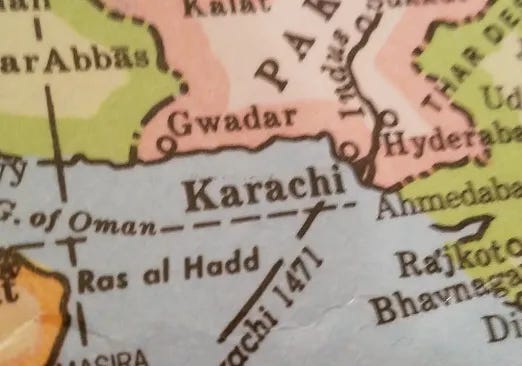Pakistan reports additional Naegleria fowleri death in Karachi
3 cases in past week
Pakistani media report an additional death from the brain-eating amoeba, Naegleria fowleri, in Sindh province, and the third case and death in the past week.
The provincial health department said, “At least three persons have died due to primary amoebic meningoencephalitis [PAM], caused by Naegleria fowleri, in Sindh since July 5. Two people were residents of Karachi, while one was from Hyderabad, who also died in Karachi during treatment.”
The most recent case is a 22-year-old man from Malir who likely contracted N. fowleri when he went swimming in a pool in Quaidabad on July 7. The next day he developed a fever, and on July 10 he was taken to the Jinnah Postgraduate Medical Centre, where he died on July 11.
In southeastern Pakistan, the Sindh health department said that 11 deaths due to infection with the amoebic parasite, Naegleria fowleri were reported in 2023.
Pakistan is no stranger to Naegleria fowleri. Deaths related to primary amoebic meningoencephalitis (PAM) have been regularly reported from Karachi since 2008. At least 150 people have died of the disease in Pakistan over the past 14 years.
Subscribe to Outbreak News TV on YouTube
Naegleria fowleri is a microscopic amoeba which is a single-celled living organism. It can cause a rare and devastating infection of the brain called primary amebic meningoencephalitis (PAM). The amoeba is commonly found in warm freshwater such as lakes, rivers, ponds and canals.
Infections can happen when contaminated water enters the body through the nose. Once the amoeba enters the nose, it travels to the brain where it causes PAM (which destroys brain tissue) and is usually fatal. Infections usually occur when it is hot for prolonged periods of time, which results in higher water temperatures and lower water levels.
Naegleria fowleri infections are rare. Most infections occur from exposure to contaminated recreational water. Cases due to the use of neti pots and the practice of ablution have been documented.
The practice of ablution is included in Yogic, Ayurvedic, and Islamic traditions. Within the Islamic faith, ritual nasal rinsing is included in a cleansing process called “wudu” or “ablution.” It is usually performed several times a day in preparation for prayer, according to the Centers for Disease Control and Prevention.
You cannot be infected with Naegleria fowleri by drinking contaminated water and the amoeba is not found in salt water.
Initial symptoms of PAM usually start within 1 to 7 days after infection. The initial symptoms may include headache, fever, nausea, or vomiting. Other symptoms can include stiff neck, confusion, loss of balance, seizures, and hallucinations. After the start of symptoms, the disease progresses rapidly.





